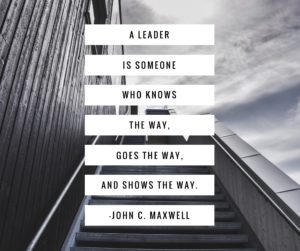If you’re a job seeker in today’s market, you’ve probably heard of informational interviews, but may be wondering why they are useful, who to ask, and how to ask for them. I’ll cover the basics here and give you language for your requests to customize based on your audience.
When you’re job searching, you know you need to get to a hiring manager. You also probably know how important getting that inside referral is to getting your application past the ATS to an actual human being decision-maker.
So how do you accomplish that? The informational interview is a great tool to have in your arsenal! It can help you build connections, learn about a company’s hiring process, and better understand what positions, departments, and companies are the best fit for your skills, experience level, and career goals.
Who to Ask
I like to break it down into two primary groups.
One would be your contemporaries, counterparts in similar roles who can shed light on the application process, do’s and don’ts, position hierarchies, and what the actual job is like. These would be professionals in lateral roles to the one you are currently in or applying to and can help you understand what titles you should keep on your radar, how the hiring process works, and what to expect during an interview process.
The other is potential hiring managers. These contacts can give you a broader, more strategic understanding of the company and the industry. Believe it or not, these people are often most open to informational interviews, because they understand and respect your initiative. They have likely had to network and navigate to get where they are today.
How to Ask
This is often the hardest part! I’ve included a bunch of prompts to help you get started below. Send out a few today and see what happens. If you get a positive response, use that as your base for future requests. If you’re not getting anything back, tweak your request and your strategy.
Informational Interview Request (Referral)
Hi Name!
{Name} suggested I reach out to you as a potential contact with expertise in (field). I hope you don’t mind me contacting you out of the blue!
A {title/function} with {# of years} of {industry} experience, I am really interested in learning about {something you know about contact or company} and would love to hear more about your journey.
Are you open to a quick call?
Happy to help with anything at all on my end. I look forward to connecting.
Thanks,
Rebecca
Informational Interview Request (Cold)
Hi Name!
My name is [Your Name] and I came across your info on X while researching X. I hope you don’t mind me contacting you out of the blue. I am reaching out because
Possible next lines:
- your work in X really intrigued me! I have been working on similar projects {include details} at {current company} and love to connect with other pros.
- your transition from financial services really impressed me! I’m sure that transition wasn’t easy.
- Company Name is on my radar and I’d love to learn more about what you’re doing in the X space and learn more about the culture.
- I saw you have extensive experience {in function}, which is an area I’m also passionate about.
- I saw you have extensive experience {at Company}, which is a company I’m interested in learning more about.
I know your time is valuable and don’t expect you to know of any open positions. I’d really just love to hear more about your journey and have the opportunity to learn more about the company!
If you do have a few minutes to chat, I’d be really grateful. If not, no worries! Either way, have a great day and stay well!
Thank you!
{Your Name}
What to Ask
Once you’ve secured the interview, do your homework! Study their profile, google the contact, and make a (long!) list of possible questions. You won’t necessarily get to ask all of them, but you definitely don’t want to waste their time or appear unprepared. Great starters include:
- How did you get to where you are?
- What do you do every day?
- What do you like about your job?
- What’s the culture like?
- What’s the best career advice you have ever been given?
Why Informational Interviews are Helpful
Beyond the value of building new connections, informational interviews help you to cultivate a deeper understanding of the role you want, the companies you admire, and the skills and attributes hiring managers value the most. With this renewed understanding, you can more effectively evaluate your own candidacy. What are opportunities to upskill? What kind of feedback can you integrate to improve your resume or LinkedIn profile? What can you volunteer for at work to bolster your candidacy for the jobs you really want?
Reach out with any questions at all – 973.270.1777 or rebecca@thejobgirl.com. Happy hunting!


 Most of my advice is around “how to’s”. How to write a resume. How to optimize LinkedIn. How to demonstrate your value to an employer. While all of this is very important, like anything else, the “how not to’s” can be equally as critical.
Most of my advice is around “how to’s”. How to write a resume. How to optimize LinkedIn. How to demonstrate your value to an employer. While all of this is very important, like anything else, the “how not to’s” can be equally as critical.
